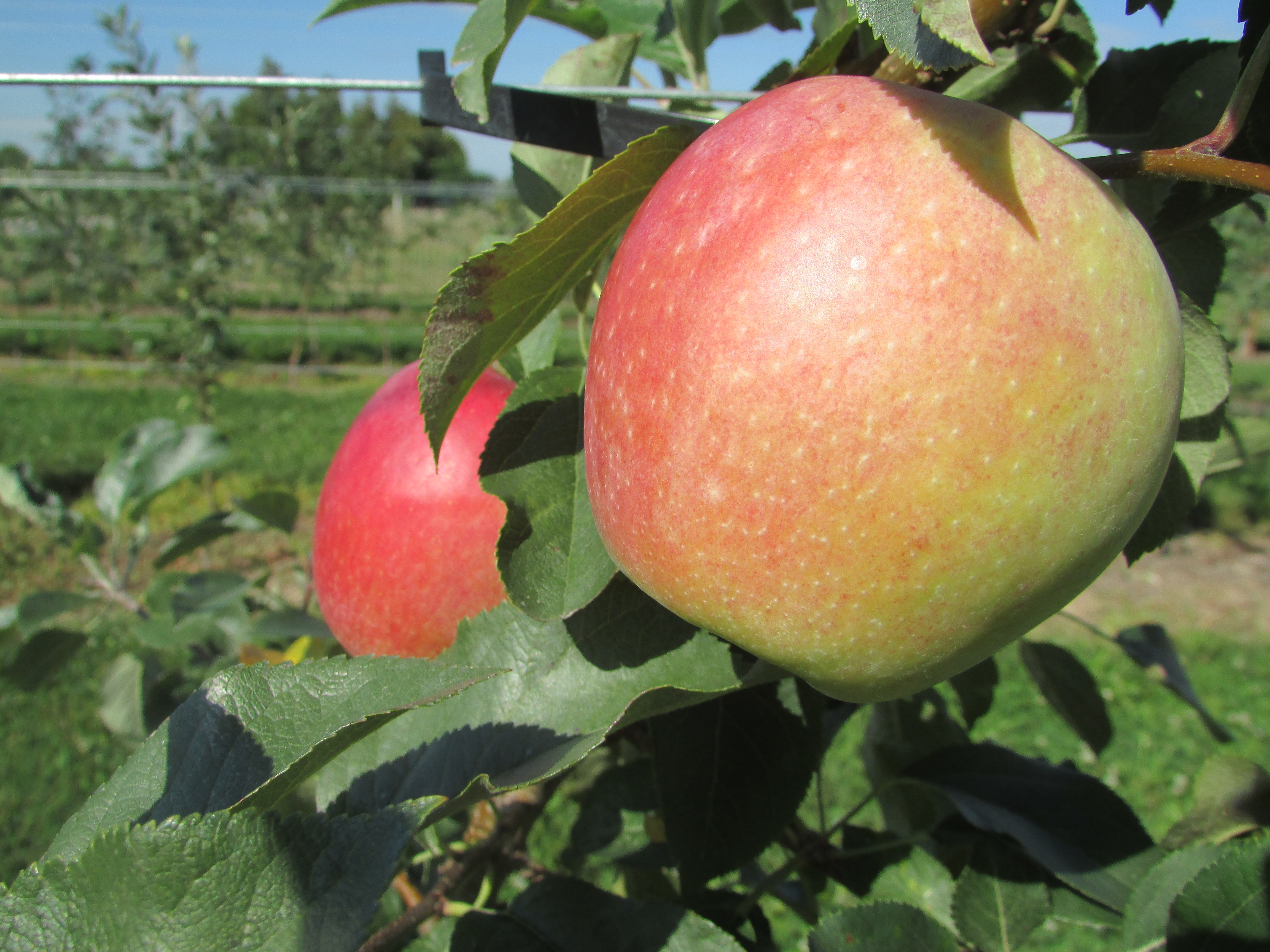
Features
Business
Policy
Researchers developing “made-in-Ontario” apple varieties
October 21, 2015 By Lilian Schaer for AgInnovation Ontario

October 21, 2015, Vineland, Ont – Ontario plant breeders and consumer preference researchers have teamed up with the province’s apple growers to work towards bringing new, local apple varieties to market.
Traditionally, it can take 20 years or more to develop a new apple variety – time during which markets and consumer preferences can change – but a research partnership between the Ontario Apple Growers and Vineland Research and Innovation Centre is hoping to cut that development time in half.
To help reach this goal, researchers are incorporating data from Vineland’s consumer and sensory research. This involved asking a sensory panel to identify the apple characteristics they found most appealing which will help develop new apple varieties that specifically meet the needs and wants of Ontario consumers.
Dr. Amy Bowen, research program leader consumer insights at Vineland, is involved in work that combines the results of sensory profiling and consumer preference with genomics (selecting apples with specific genes).
This means that in addition to looking and tasting “right,” these apples would also have disease resistance and cold tolerance traits to grow well in Ontario’s climate.
“If we know what consumers like or want in an apple, we can use that information to guide our breeding program and select varieties with those characteristics much earlier in the breeding process,” explains Dr. Bowen. “Our research has shown that 89 per cent of consumers prefer the flavour of fresh red apples while 11 per cent of consumers are more interested in the flavour of fresh green apples.”
According to project leader Dr. Daryl Somers, Vineland’s research director of applied genomics, researchers can map human sensory and taste preferences for apples and identify genetic markers for specific qualities that consumers prefer, markers that are used to accelerate Vineland’s breeding program.
Somers says the goal of the apple breeding project is to plant a total of 25,000 trees for evaluation over the next few years. The first “made-in-Ontario” apple could be on the market within 12 years.
Since 2011, the Vineland team has been sequencing the DNA of 70 high quality apple varieties from Vineland’s Heritage Orchard as well as modern commercial lines.
Vineland currently has more than 4,000 apple trees planted for evaluation at its Niagara Region research farm. A further 9,000 apple seedlings, selected by using DNA fingerprinting for sugar/acid balance, firmness, and better storage potential, will be budded onto root stock this fall.
Vineland’s Heritage Orchard, established in 1967, offers 100 unique apple varieties from around the world dating from the 16th century to the present. They are very diverse in their fruit size, flavour and growing properties, making them ideal for a strong research program, adds Somers.
Print this page